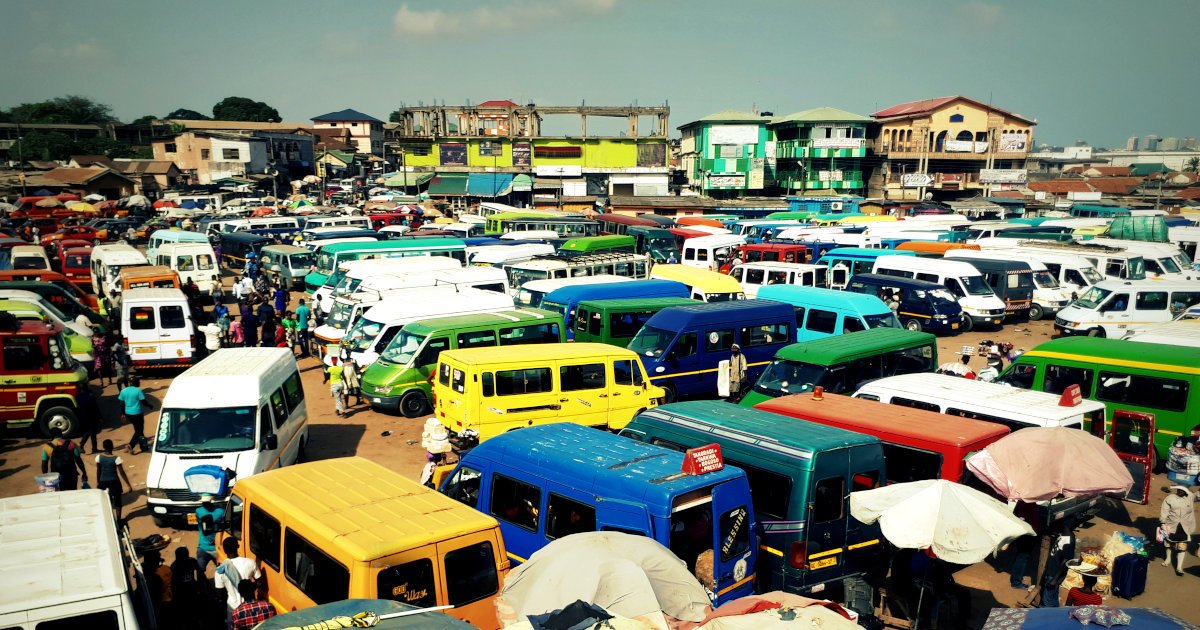The Ghana Private Road Transport Union (GPRTU) has revealed plans to increase transport fares if fuel prices fail to remain stable.
According to the Deputy Public Relations Officer of the GPRTU, Samuel Amoah, the rising fuel costs and the spare parts dealers’ refusal to reduce prices have forced the union to consider adjusting transport fares.
Speaking to Eyewitness News, Samuel Amoah stated, “When we were asked to reduce our transport fare by 15%, the fuel price was around 12.59p for diesel, and the petroleum too was around 11.34p”.
“After that, the expectation was that maybe the fuel price was going to remain the way it was, but then we noticed that it kept going up. At the same time, we are also complaining about the cost of spare parts and other components that we use to run our business.”
The Deputy Public Relations Officer of the GPRTU further cried out at the spare parts dealers’ refusal to reduce their prices.
He further explained, “We came out complaining that the spare parts dealers should reduce their prices, but they haven’t done so. So, looking at where the fuel prices are now — diesel is now being sold at 14.44 pesewas, thereabout, and then petrol too around 13.69 pesewas — we find that if the next pricing window pushes fuel up again, then the transport operators would have to do some adjustments of transport fares so we can continue to serve the public”.
The GPRTU called on the government to act swiftly to stabilise fuel prices.
“We are asking the government to find a way of holding the fuel pricing for it not to go up again. But if it happens to go up, then there is nothing we can do but to increase the transport fare,” he said.
Meanwhile, the prices of fuel in Ghana have gone up following the continuous depreciation of the Ghana cedi.
The Oil Marketing Companies (OMCs) have begun adjusting prices at the pumps.
GOIL was the first to adjust prices after most OMCs kept theirs unchanged for about a week, with other OMCs expected to follow suit.
Reports suggest prices should have gone up by about 6% per litre from September 16.
COMAC has explained that the main reason for the adjustment is the depreciation of the Ghana cedi against the US dollar.
The cedi fell from GH¢11.20 to GH¢12.07 to the dollar during the review period, which is a 7.76% drop.
COMAC explained, “The decline is primarily due to strong demand for the dollar for imports ahead of the festive season”.
However, on the global market, crude oil and refined petroleum product prices fell petrol by 2.52%, diesel by 4.12%, and LPG by 2.69%.
The Ghana cedi has come under pressure since the beginning of August due to what some market players describe as a limited supply of dollars on the market.
Meanwhile, Dr Johnson Asiama, the Bank of Ghana Governor, has said the Ghana cedi still remains one of the best-performing currencies globally despite the slowdown in remittance inflows.
The BoG Governor highlighted that remittances have not been as strong as in previous periods, but the impact on the cedi’s performance has been confined.
See the post below:
Commercial drivers serve notice of possible transport fare increase if fuel prices fail to remain stable in the upcoming pricing window#JoyNews pic.twitter.com/abGJw1LR3u
— JoyNews (@JoyNewsOnTV) October 7, 2025

